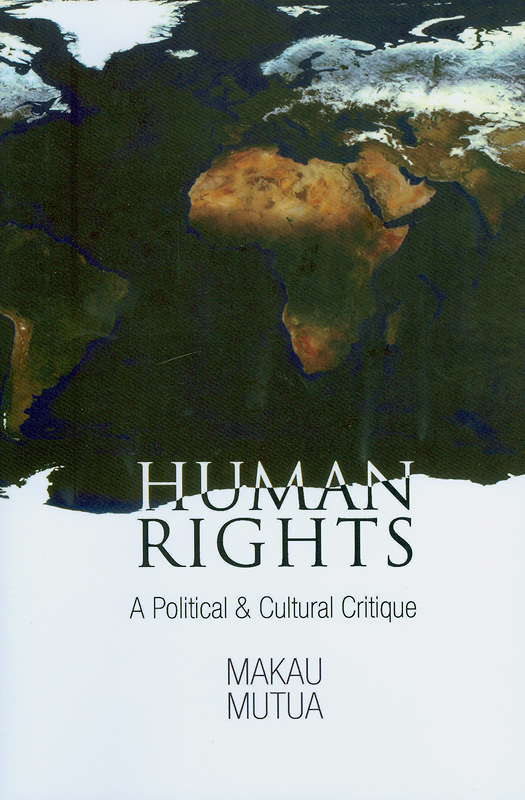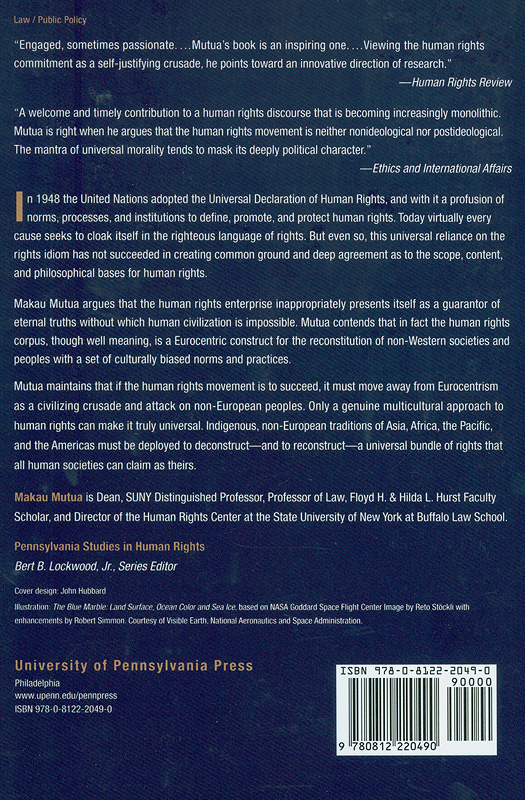- <a href="https://library.nhrc.or.th/th" aria-label="home" class="mainMenu"> <em class="fas fa-home"></em> </a>
-
เกี่ยวกับเรา
ย้อนกลับ เกี่ยวกับเรา<a href="https://library.nhrc.or.th/th/history" aria-label="menu" class="submenu-list" target="_self"> ความเป็นมา </a> <a href="https://library.nhrc.or.th/th/structure" aria-label="menu" class="submenu-list" target="_self"> โครงสร้าง </a> <a href="https://library.nhrc.or.th/th/vision" aria-label="menu" class="submenu-list" target="_self"> วิสัยทัศน์/พันธกิจ </a> <a href="https://library.nhrc.or.th/th/award" aria-label="menu" class="submenu-list" target="_self"> รางวัล </a> <a href="https://library.nhrc.or.th/th/announce" aria-label="menu" class="submenu-list" target="_self"> ระเบียบ/ประกาศ </a> นโยบายองค์กรอัลบั้มภาพ<a href="https://library.nhrc.or.th/th/website-policy" aria-label="menu" class="submenu-list"> นโยบายเว็บไซต์ </a> <a href="https://library.nhrc.or.th/th/website-security-policy" aria-label="menu" class="submenu-list"> นโยบายการรักษาความมั่นคงปลอดภัยเว็บไซต์ </a> <a href="https://library.nhrc.or.th/th/personal-information-protection-policy" aria-label="menu" class="submenu-list"> นโยบายการคุ้มครองข้อมูลส่วนบุคคล </a> <a href="https://library.nhrc.or.th/th/privacy-policies" aria-label="menu" class="submenu-list"> นโยบายความเป็นส่วนตัว </a> <a href="https://library.nhrc.or.th/th/terms-of-service" aria-label="menu" class="submenu-list"> เงื่อนไขการใช้บริการ </a> <a href="https://library.nhrc.or.th/th/cookies-policy" aria-label="menu" class="submenu-list"> นโยบายคุกกี้ </a><a href="https://library.nhrc.or.th/th/album-image" aria-label="menu" class="submenu-list"> อัลบั้มภาพ </a> <a href="https://library.nhrc.or.th/th/gallery360" aria-label="menu" class="submenu-list"> ภาพ 360° </a>
-
บริการ
ย้อนกลับ บริการ<a href="https://library.nhrc.or.th/th/borrow-and-return" aria-label="menu" class="submenu-list" target="_self"> การยืม-คืน </a> <a href="https://library.nhrc.or.th/th/service" aria-label="menu" class="submenu-list" target="_self"> บริการทั้งหมด </a> <a href="https://library.nhrc.or.th/th/flow-service" aria-label="menu" class="submenu-list" target="_self"> ขั้นตอนการใช้บริการ </a> <a href="https://library.nhrc.or.th/th/imfortable" aria-label="menu" class="submenu-list" target="_self"> สิ่งอำนวยความสะดวก </a> แบบฟอร์มบริการ<a href="https://forms.gle/syLmif2eKJ3kfA2g9" aria-label="menu" class="submenu-list" target="_blank"> ประเมินความพึงพอใจ </a> <a href="https://library.nhrc.or.th/th/event" aria-label="menu" class="submenu-list" target="_self"> กิจกรรม </a> <a href="https://library.nhrc.or.th/th/plan" aria-label="menu" class="submenu-list" target="_self"> แนะนำพื้นที่ </a><a href="https://library.nhrc.or.th/th/form-search" aria-label="menu" class="submenu-list"> แบบฟอร์มบริการค้นหาสารสนเทศ </a> <a href="https://library.nhrc.or.th/th/form-suggestions" aria-label="menu" class="submenu-list"> แบบฟอร์มแนะนำทรัพยากรสารสนเทศ </a>
-
แหล่งสารสนเทศ
ย้อนกลับ แหล่งสารสนเทศ<a href="https://library.nhrc.or.th/th/search?ctrl=kw&searchopt=&type=place&keyword=14" aria-label="menu" class="submenu-list" target="_self"> สิ่งพิมพ์สำนักงาน กสม. </a> <a href="https://library.nhrc.or.th/th/search" aria-label="menu" class="submenu-list" target="_self"> ทรัพยากรสารสนเทศทั้งหมด </a> สารสนเทศด้านสิทธิมนุษยชน<a href="https://library.nhrc.or.th/th/network" aria-label="menu" class="submenu-list" target="_self"> เครือข่ายความร่วมมือระหว่างห้องสมุด </a> <a href="https://library.nhrc.or.th/th/dictionary" aria-label="menu" class="submenu-list" target="_self"> พจนานุกรมศัพท์สิทธิมนุษยชน </a> <a href="https://library.nhrc.or.th/th/sourceresearch" aria-label="menu" class="submenu-list" target="_self"> ฐานข้อมูลงานวิจัย/วิทยานิพนธ์ </a> <a href="https://www.tci-thaijo.org/" aria-label="menu" class="submenu-list" target="_blank"> ฐานข้อมูลวารสารอิเล็กทรอนิกส์ (ThaiJO) </a> <a href="https://ncx.dataxet.co/" aria-label="menu" class="submenu-list" target="_blank"> ฐานข้อมูลข่าวออนไลน์ </a> <a href="http://library.nhrc.or.th/document/Manual/APA.pdf" aria-label="menu" class="submenu-list" target="_blank"> คู่มือการเขียนอ้างอิงทางวิชาการ </a><a href="https://library.nhrc.or.th/th/law-of-human-rights" aria-label="menu" class="submenu-list"> กฎหมายด้านสิทธิมนุษยชน </a> <a href="https://library.nhrc.or.th/th/international-human-rights" aria-label="menu" class="submenu-list"> สิทธิมนุษยชนระหว่างประเทศ </a> <a href="https://library.nhrc.or.th/th/international-human-rights-treaties" aria-label="menu" class="submenu-list"> พันธกรณีระหว่างประเทศ </a> <a href="https://library.nhrc.or.th/th/national-human-rights-commissions" aria-label="menu" class="submenu-list"> สถาบันสิทธิมนุษยชนแห่งชาติ </a> <a href="https://library.nhrc.or.th/th/judgment" aria-label="menu" class="submenu-list"> คำพิพากษาของศาล </a> <a href="https://library.nhrc.or.th/th/human-rights-online-resources" aria-label="menu" class="submenu-list"> แหล่งสารสนเทศด้านสิทธิมนุษยชน </a> <a href="https://library.nhrc.or.th/th/un-and-affiliated-agencies" aria-label="menu" class="submenu-list"> กองทุนและโครงการของสหประชาชาติ </a>
-
สถิติ
ย้อนกลับ สถิติ<a href="https://library.nhrc.or.th/th/statistic/1" aria-label="menu" class="submenu-list" target="_self"> การเข้าใช้บริการ </a> <a href="https://library.nhrc.or.th/th/statistic/2" aria-label="menu" class="submenu-list" target="_self"> การยืมทรัพยากรสารสนเทศ </a> <a href="https://library.nhrc.or.th/th/statistic/3" aria-label="menu" class="submenu-list" target="_self"> บริการตอบคำถามและช่วยการค้นคว้า </a> <a href="https://library.nhrc.or.th/th/statistic/4" aria-label="menu" class="submenu-list" target="_self"> จำนวนทรัพยากรสารสนเทศ </a> <a href="https://library.nhrc.or.th/th/statistic/5" aria-label="menu" class="submenu-list" target="_self"> จำนวนผู้เยี่ยมชมและศึกษาดูงาน </a> <a href="https://library.nhrc.or.th/th/statistic/6" aria-label="menu" class="submenu-list" target="_self"> การใช้งานผ่านเว็บไซต์ </a> <a href="https://library.nhrc.or.th/th/statistic/7" aria-label="menu" class="submenu-list" target="_self"> รายงานผลการปฎิบัติงานฯ </a>
-
ติดต่อเรา
ย้อนกลับ ติดต่อเรา<a href="https://library.nhrc.or.th/th/faq" aria-label="menu" class="submenu-list" target="_self"> คำถามที่พบบ่อย </a> <a href="https://library.nhrc.or.th/th/opening-hours-close-calendar" aria-label="menu" class="submenu-list" target="_self"> เวลาทำการ/ปฏิทินวันหยุด </a> <a href="https://library.nhrc.or.th/th/contacts-us" aria-label="menu" class="submenu-list" target="_self"> ติดต่อเรา </a>
-
สมาชิก
ย้อนกลับ สมาชิก<a href="https://library.nhrc.or.th/th/membership-application" aria-label="menu" class="submenu-list" target="_self"> สมัครสมาชิก </a> <a href="https://library.nhrc.or.th/th/member/login" aria-label="menu" class="submenu-list" target="_self"> ระบบสมาชิก </a>
Human rights NGOs in East Africa : political and normative tensions
| ประเภท | เลขเรียก | สถานที่ | สถานะ | |
|
JQ2945.A91 H918 2009 |
มุมหนังสือทั่วไป | บนชั้น | ขอยืม |
| ISBN |
9780812220490 (pbk.)
|
| เลขเรียก |
JQ2945.A91 H918 2009
|
| ชื่อเรื่อง |
Human rights NGOs in East Africa : political and normative tensions / edited by Makau Mutua
|
| พิมพลักษณ์ |
Philadelphia : University of Pennsylvania Press, [2009].
|
| รูปเล่ม |
vii, 390 p. ; 24 cm.
|
| หมายเหตุสารบัญ |
Human rights NGOs in East Africa : defining the challenges/ Makau Mutua
--To whom, for what, and about what? The legitimacy of human rights NGOs in Kenya / Betty K.Murungi --Law, sexuality, and politics in Uganda :challenges for women's human rights NGOs / Sylvia Tamale --NGO struggles for economic, social, and cultural rights in UTAKE : a Ugandan perspective / Joe Oloka-Onyango --Feminist masculinity : advocacy for gender equality and equity / Willy Mutunga --Women's advocacy : engendering and reconstituting the Kenyan state / Jacinta K. Muteshi --Donors and human rights NGOs in East Africa : challenges and opportunities / Connie Ngondi-Houghton --Contradictions in neoliberalism : donors, human rights NGOs, and governance in Kenya / Karuti Kanyinga --State and civil society relations : constructing human rights groups for social change / Livingstone Sewanyana --Governance and democracy in Kenya : challenges for human rights NGOs / J. Wanjiku Miano --The African women's development and communication network : Pan-African organizing in human rights / L. Muthoni Wanyeki --Social transformation in Uganda : a study of grassroots NGOs / Dani W. Nabudere --The death penalty in East Africa : law and transnational advocacy / Margaret A. Burnham --Democracy organizations in political transitions : IDASA and the new South Africa / Shaila Gupta and Alycia Kellman --Conclusion : coming of age : NGOs and state accountability in East Africa / Chris Maina Peter. |
| บทคัดย่อ |
In 1948 the United Nations adopted the Universal Declaration of Human Rights, and with it a profusion of norms, processes, and institutions to define, promote, and protect human rights. Today virtually every cause seeks to cloak itself in the righteous language of rights. But even so, this universal reliance on the rights idiom has not succeeded in creating common ground and deep agreement as to the scope, content, and philosophical bases for human rights. Makau Mutua argues that the human rights enterprise inappropriately presents itself as a guarantor of eternal truths without which human civilization is impossible. Mutua contends that in fact the human rights corpus, though well meaning, is a Eurocentric construct for the reconstitution of non-Western societies and peoples with a set of culturally biased norms and practices. Mutua maintains that if the human rights movement is to succeed, it must move away from Eurocentrism as a civilizing crusade and attack on non-European peoples. Only a genuine multicultural approach to human rights can make it truly universal. Indigenous, non-European traditions of Asia, Africa, the Pacific, and the Americas must be deployed to deconstructand to reconstructa universal bundle of rights that all human societies can claim as theirs.
|
| หัวเรื่อง | |
| หัวเรื่อง | |
| หัวเรื่อง | |
| หัวเรื่อง | |
| หัวเรื่อง | |
| หัวเรื่องภูมิศาสตร์ | |
| คำศัพท์ | |
| ผู้แต่งร่วม | |
| เชื่อมโยง |
| LEADER : 00000nab 2200000uu 4500 |
| 008 191017s2009|||| us 000 0 eng d |
| 020 ^a9780812220490 (pbk.) |
| 050 00^aJQ2945.A91^bH918 2009 |
| 245 00^aHuman rights NGOs in East Africa :^bpolitical and normative tensions /^cedited by Makau Mutua |
| 260 ^aPhiladelphia :^bUniversity of Pennsylvania Press,^c[2009]. |
| 300 ^avii, 390 p. ^c24 cm. |
| 440 0^aPennsylvania studies in human rights |
| 504 ^aIncludes bibliographical references (pages [319]-365) and index. |
| 505 0 ^aHuman rights NGOs in East Africa : defining the challenges/^rMakau Mutua --^tTo whom, for what, and about what? The legitimacy of human rights NGOs in Kenya /^rBetty K.Murungi --^tLaw, sexuality, and politics in Uganda :challenges for women's human rights NGOs /^rSylvia Tamale --^tNGO struggles for economic, social, and cultural rights in UTAKE : a Ugandan perspective /^rJoe Oloka-Onyango --^tFeminist masculinity : advocacy for gender equality and equity /^rWilly Mutunga --^tWomen's advocacy : engendering and reconstituting the Kenyan state /^rJacinta K. Muteshi --^tDonors and human rights NGOs in East Africa : challenges and opportunities /^rConnie Ngondi-Houghton --^tContradictions in neoliberalism : donors, human rights NGOs, and governance in Kenya /^rKaruti Kanyinga --^tState and civil society relations : constructing human rights groups for social change /^rLivingstone Sewanyana --^tGovernance and democracy in Kenya : challenges for human rights NGOs /^rJ. Wanjiku Miano --^tThe African women's development and communication network : Pan-African organizing in human rights /^rL. Muthoni Wanyeki --^tSocial transformation in Uganda : a study of grassroots NGOs /^rDani W. Nabudere --^tThe death penalty in East Africa : law and transnational advocacy /^rMargaret A. Burnham --^tDemocracy organizations in political transitions : IDASA and the new South Africa /^rShaila Gupta and Alycia Kellman --^tConclusion : coming of age : NGOs and state accountability in East Africa /^rChris Maina Peter. |
| 520 ^aIn 1948 the United Nations adopted the Universal Declaration of Human Rights, and with it a profusion of norms, processes, and institutions to define, promote, and protect human rights. Today virtually every cause seeks to cloak itself in the righteous language of rights. But even so, this universal reliance on the rights idiom has not succeeded in creating common ground and deep agreement as to the scope, content, and philosophical bases for human rights. Makau Mutua argues that the human rights enterprise inappropriately presents itself as a guarantor of eternal truths without which human civilization is impossible. Mutua contends that in fact the human rights corpus, though well meaning, is a Eurocentric construct for the reconstitution of non-Western societies and peoples with a set of culturally biased norms and practices. Mutua maintains that if the human rights movement is to succeed, it must move away from Eurocentrism as a civilizing crusade and attack on non-European peoples. Only a genuine multicultural approach to human rights can make it truly universal. Indigenous, non-European traditions of Asia, Africa, the Pacific, and the Americas must be deployed to deconstructand to reconstructa universal bundle of rights that all human societies can claim as theirs. |
|
650 0^aHuman rights^zAfrica, Eastern
650 0^aDemocratization^zAfrica, Eastern 650 0^aNon-governmental organizations^zAfrica, Eastern 650 0^aCivil society^zAfrica, Eastern 650 0^aDemocracy^zAfrica, Eastern |
| 651 0^aEastern Africa^xPolitics and government^y1960- |
| 653 ^aNew Arrivals 12-2019 |
| 700 1 ^aMutua, Makau |
| 856 40^3Content^uhttp://library.nhrc.or.th/ulib/document/Content/T10786.pdf |
| 917 ^aKN :^c851 |
| 955 ^a1 copy |
| 999 ^aKeyrunya |


ก่อนเพิ่มแท็กหรือแสดงความคิดเห็น